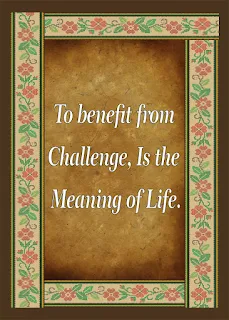I sat down, to get an idea of just how many subscriptions and other payments are made in one year to services and products which are totally ephemeral. I don't mean in the classical definition of the word ephemeral, that is things which lasted only one day, rather I mean purchased items which have no physical shape. Take for example a movie subscription on Netflix. Then their software, it to today has no physical product and even if you're lucky enough to have a box which the product came in I bet that's all it is an empty box with perhaps a license key.
When you start to add all of the items up, it can be quite a shock. Not only is there nothing physical to show for the money you are spending, it is the fact that we have moved very quickly in this direction. I can't help thinking that this is a "Sucker's Game" in the end.
It used to be that everything you spent money on you came home with. As the late
George Carlin used to say in his standup routine "You Have so Much Stuff! And you need more places to put it." Now we don't need any place, and in that I find an issue. I Miss My Stuff!.
When I first got into computing, the software came with huge binders of information. It cost an arm and a leg, but you had something physical. Even though it had a software license there was no time limit. As long as you had a computer that could run whatever the product was. It would work… Fast forward to 2026 and every time major software is launched on your machine it connects to a remote server run by the company who made the package. If it doesn't make that connection your software doesn't run. Here's the kicker, and nobody seems to mind.
So what we are witnessing is a huge change in the mindset of the consumer, and from my perspective, this puts a layer of abstraction between the very products you use and the knowledge of what you need in order to use them. If your Internet connection goes down how many of these products you know will stop working? Probably many more than you think. Recently, I worked was someone whose printer was not working. It turned out that the printer needed to be hooked up to the Internet so that he could call home approximately once a week. It was doing this because the owner had joined a subscription ink service. To make matters even more interesting, when they decided to cancel their subscription the printer shut down again because the ink cartridges were parked of that subscription. Ultimately the person I had to go to the store and physically by new cartridges to get things going again. Even though the subscription cartridges had plenty of ink left and they had been fully paid for.
Not too long ago this would have resulted in a complete consumer revolt. As I recall a mini revolt was generated when Windows 95 and Windows 98 implemented a crude version of automatic updates. People were really put off by the fact that Microsoft could scan their computer. If they only knew, back then what was coming… Back then as well you had to go to the Microsoft update webpage to do the scan so it was quite different than it is today, but it was the beginning of a transition from the physical product to the ephemeral.
It is so easy to lose track and receive a surprise Subscription Renewal notice saying something like "Thank You! Your subscription has been automatically renewed." It adds up collectively very quickly. Personally that is why I have every auto payment option in my bank account turned off. On the occasion where a store requires the authorization for automatic payments, once the transaction is complete I go in and it disable that authorization.
Let me know your thoughts on this topic. If you feel like it please also feel free to relay some personal experiences.
Have a great day!
Patrick
** NOTE: The picture displayed at the top of this article is from the service Ideogram AI. As a layperson, I have read their relevant "terms of service"
and determined, to the best of my ability, that the image may be viewed
by the public. However before any reuse, please review fully their
terms and if necessary contact the company for more information.
The use of said image does not imply any affiliation or endorsement.









.png)

.png)








